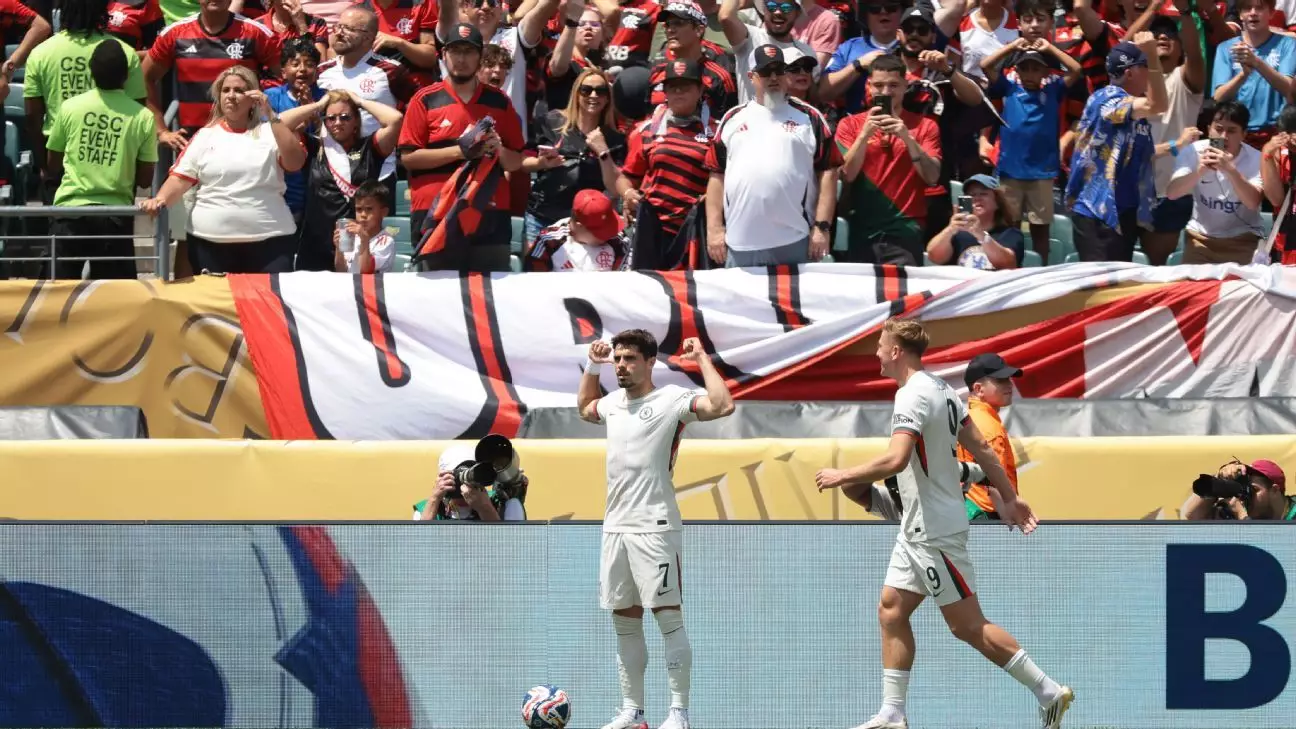In the high-stakes realm of football, desire often becomes the fuel that ignites a team’s performance, and such was the case when Flamengo decisively triumphed over Chelsea in the recent Club World Cup match. Pedro Neto’s candid reflection on the game encapsulated the struggle of his team under pressure, acknowledging that Flamengo appeared to showcase a more profound hunger for victory compared to Chelsea. Admittedly, Flamengo’s attacking prowess, particularly in the second half, highlighted a significant psychological advantage that sometimes outweighs tactical plans.
Neto’s admission about the first half of the match, where Chelsea seemingly had better control but struggled to create genuine scoring opportunities, illuminates a crucial aspect of football: a team can dominate possession without translating that into goals. This analysis suggests that raw aggression and the will to win can often trump stylish ball control, a lesson worth remembering as football continues to evolve into a more strategy-driven sport.
Pivotal Moments Define the Match
The dynamics of the match shifted dramatically when Nicolas Jackson was sent off early in the second half, which many would argue sealed the fate of Chelsea at Lincoln Financial Field. Such game-changing moments can punctuate the narrative of any match, as they fundamentally alter momentum. This red card not only diminished Chelsea’s options strategically but also emboldened Flamengo, allowing them to capitalize on the psychological turmoil within Chelsea ranks. With each passing minute post-red card, Flamengo’s confidence soared, a stark contrast to Chelsea’s evident disarray.
The game itself morphed during these critical moments, showcasing how quickly fortunes can change in football, further illustrating the importance of team mentality alongside skill. Flamengo surged forward with Wallace Yan’s late goal cementing their dominance, leaving Chelsea scrambling to find a way back into the match, but it was too little, too late.
Reflections Amidst Disappointment
Neto’s sentiments about preferring to be part of the tournament rather than lounging on a beach are astoundingly revealing. His comments touch on a universal truth within professional sports: the thrill of competition outweighs the allure of leisure. When players view every match and every tournament as a significant opportunity, they seem to embrace a culture of gratitude that resonates within the football community. It’s this mentality that champions the enjoyment and passion for the game, elements sometimes overshadowed by the pressure to win.
Furthermore, Marc Cucurella’s remarks illustrate the various vitality levels between South American and European teams. His candid admission about the differing “momentum” during the tournament suggests that while the Premier League is heralded as the pinnacle of excellence, other leagues thrive under their unique conditions that can foster extraordinary talent. It raises fascinating questions about how environmental factors, familiarity with conditions, and emotional states impact performance on the global stage.
In light of these observations, it becomes evident that the Club World Cup envelops more than just a contest of skill—it underscores the raw emotion, determination, and cultural complexities that shape the beautiful game. Synthetic strategies may get one far, but it is often the unquantifiable elements of desire and passion that ultimately write the stories of football history.

